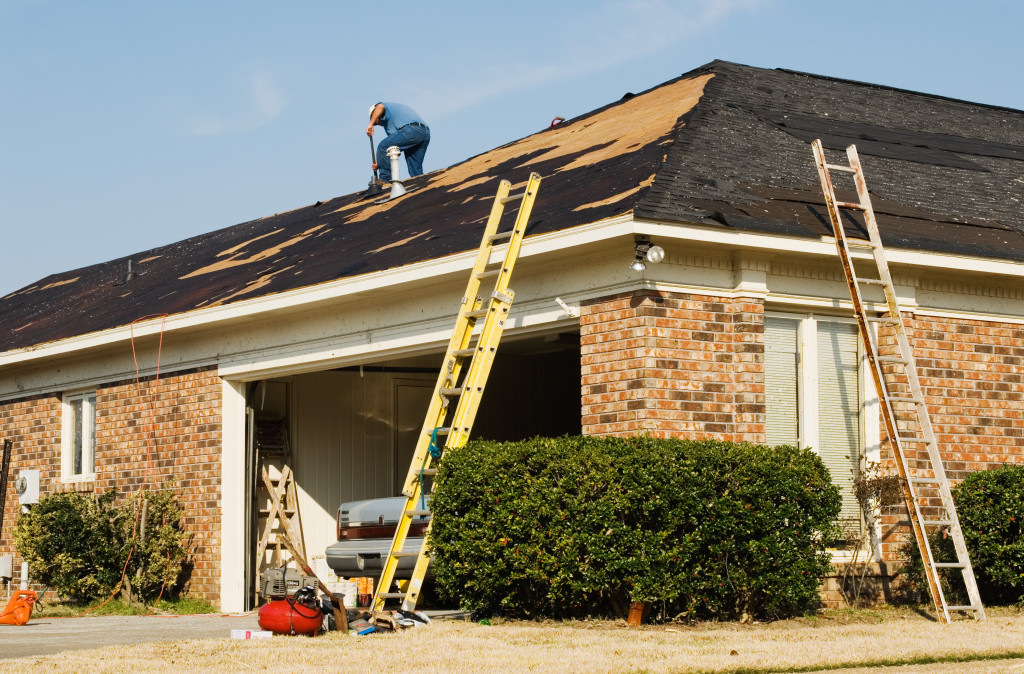Buying a fixer-upper can be an excellent way to get the house you want at a much lower price. But if you’re not careful, it could turn into the nightmare of your life. You’ll have to make all sorts of repairs and improvements before you can live in it and by then, chances are that what seemed like such a good deal will seem more like an expensive mistake. On top of all those expenses, there’s also the matter of finding someone qualified to do everything for you, from roofing and painting to carpentry work and plumbing. So how can you make the purchase worth it? Here are some things to keep in mind before you buy a fixer-upper.
1. Do your research.
Buying a fixer-upper is not for the faint of heart. It’s a significant investment of time, money, and effort. So before you take the plunge, do your homework. Research the neighborhood, the condition of the property, and similar homes in the area that have been recently renovated. This will give you a realistic idea of what you’re up against and help you set a budget.
2. Get a loan pre-approval.
Before you start house hunting, get pre-approved for a loan so you know exactly how much you can afford to spend. Keep in mind that buying a fixer-upper will likely require a larger down payment and a higher interest rate.
3. Work with a real estate agent.
If you’re not familiar with the area, working with a real estate agent who knows the market well can be a big help. They can help you find the right fixer-upper and guide you through the renovation process.
4. Establish a budget and stick to it.
Renovating a fixer-upper can be expensive, so it’s important to set a realistic budget and stick to it. Factor in the cost of materials, labor, permits, and anything else you may need. And don’t forget to add on some extra money for unforeseen expenses.
5. Don’t over-improve.
When making repairs and improvements, resist the temptation to go overboard. Stick to necessary work that will improve the livability of the house and add value. For instance, you will need to have the plumbing and water heater repaired if these are not working. On the other hand, avoid luxury items that are not essential.
6. Get the proper permits.
Before starting any work, make sure you get the proper permits from your local municipality. This can help avoid problems down the road and potentially save you money on fines.
7. Don’t do it all yourself.
Renovating a fixer-upper can be a lot of work, so don’t try to do it all yourself. Delegate tasks to your family and friends and enlist their help whenever possible. This will make the process go smoother and save you time and energy.
8. Stay safe.
When you’re dealing with power tools, ladders, and other potentially dangerous equipment, it’s important to take safety precautions. Wear the proper protective gear, follow the instructions on how to use the equipment, and have someone nearby in case of an emergency.
9. Find a good contractor.
It is better to find someone qualified to do all the necessary repairs and improvements on your fixer-upper. It’s important to find a good contractor who you can trust and who has a track record of delivering quality work at a fair price. Get recommendations from friends and family, check reviews online, and interview several candidates before making a decision.
10. Consider hiring a project manager.
If you’re not confident in your ability to manage a renovation project yourself, consider hiring a project manager. This professional will oversee the work being done, make sure it’s done to your specifications, and keep track of the budget. This can be a particularly good idea if you’re not familiar with the area or the construction process.
11. Set realistic expectations.
Don’t go into buying a fixer-upper expecting to live in your dream home right away. Renovations can take time and money, so be prepared for a few bumps in the road along the way. It’s also important to remember that you may not be able to recoup your entire investment when you sell the property.
12. Prepare yourself for delays.
Renovations often do not get finished as planned, so be prepared for delays. The workers may not show up on time, the supplies may not arrive when they’re supposed to, or something else may come up that throws off your schedule. Try to stay flexible and roll with the punches.
13. Be patient.
Renovations can be slow and tedious, so be patient and don’t rush the process. If you try to do too much too soon, you’re likely to run into problems and end up spending more money than necessary.
14. Don’t forget about the little things.
In all the excitement of renovating your fixer-upper, don’t forget about the little things that need to be done. Things like painting, hanging curtains, and installing light fixtures may seem like minor details, but they can make a big difference in the overall look and feel of your home.
15. Have fun!

Renovating a fixer-upper can be a lot of work, but it’s also a lot of fun. Take your time, enjoy the process, and let your creative juices flow. And when it’s all done, you’ll have a beautiful home that you can be proud of.
Enjoy your new home.
Once the renovations are finished, sit back and enjoy your new home. You’ve put in a lot of hard work, so take some time to enjoy the fruits of your labor. And if you ever decide to sell, you can be confident that you’ve added value to your property.

